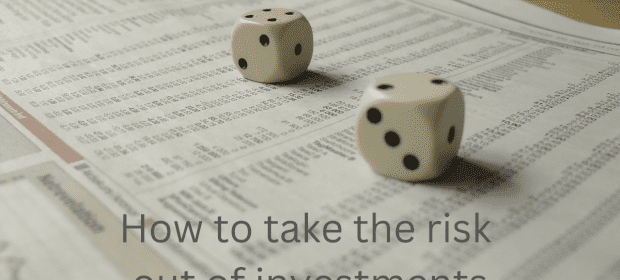Is the uncertainty over Brexit causing you uncertainty over whether to stay in France or not? Whichever side of the Brexit divide you are on, and in the knowledge that “nothing is agreed until everything is agreed”, there are some important issues to be aware of concerning life assurance-based investments and indeed insurance policies in general.
It is possible that ‘equivalence’ rules will apply, and UK insurers will continue to be treated after Brexit as they are currently. But bear in mind that some of the comments in this article are made against a background of a possible ‘no-deal’ scenario, where financial services would be hit hard, so it’s important to look objectively at some of the likely implications when considering your future options.
Firstly, in order to set the scene, Brexit is set to take effect at the end of next March, following which there may be a transitional period of 15 months, during which much will continue as at present. For many of us the most important question is whether we are able to remain in France (or other EU27 country) or whether we will have to, or simply wish to, return to the UK.
With such a move comes the question of if and when you cease to be tax resident in France and instead become UK tax resident again. This is a complex area, and of course many will have been spending large parts of each year in both countries, perhaps technically risking UK residence already, and clearly this is an issue that many will need to address in detail.
For those who have investments held via life policies, and who enjoy all the benefits these offer, a change in tax residence is an event that necessitates an early review of such investments in order to determine whether they can continue as they are or whether any changes need to be considered, and this is a matter you should discuss with your financial adviser at the earliest opportunity.
French Assurances Vie
These are offered by insurance companies in France, Ireland and Luxembourg, and provide considerable tax and succession planning benefits. They also provide access to diverse investment possibilities in different currencies, and French law even allows you to hold individual listed company shares, so certain assurance vie contracts provide this facility, which can be very useful.
However, it’s important to realise that such flexibility will be punished by the UK’s HMRC if you become UK tax resident – this is because such a policy would be regarded as ‘highly personalised’ (see also below) and would be deemed to generate profits of 15% pa, which would be subject to your highest income tax rate. This would be the case even if losses were made during the year, and is clearly something to be avoided if at all possible.
You may not even use the facility to hold shares, and hold only funds, unit trusts or similar, but fortunately this treatment can be avoided by converting the policy to a ‘collectives only’ version before moving to the UK. SEB Life International, a major provider of such policies, offers an easy conversion process for existing policyholders and, if you hold one of their policies, it would be worth asking yourself whether requesting this conversion is appropriate – if you don’t ever intend to hold shares, and there is a vague possibility of becoming UK resident in future, it might be worth acting now.
Other assurance vie providers don’t always offer such investment flexibility, and so are unlikely to be affected, but if you are unsure you should check with your financial adviser.
UK Single Premium Policies
Many people in the UK own these as they provide significant UK tax advantages, and operate in a similar way to assurances vie (although the precise treatment is different). As is the case with French assurances vie and similar local policies in other countries, these allow the (relatively) tax-free roll up of income and gains inside the policy, and much less onerous taxation of withdrawals than is the case with income and gains from conventional investment holdings.
For those who have moved to France and who still hold such policies, the tax treatment can vary. There is no means by which profits can be taxed as long as these remain within the policy; however, withdrawals and encashment proceeds need to be declared to the tax authorities and, since tax treatment can vary from area to area, it is as well to assume that any such profits will be fully taxable.
In the past, there has perhaps been some inconsistency in how the rules are applied, but it is extremely likely that British people living in France after Brexit will find their affairs subjected to greater scrutiny, and such policies will face a much more certain and consistent treatment.
An important additional point is that UK policies suffer a form of UK corporation tax on the profits generated by the insurance company (and which therefore reduces the investment reward), which can’t be reclaimed or set against a French income tax liability, so they therefore suffer a form of double taxation that cannot be avoided.
Returning to the UK will mean that the tax benefits will continue to be available, but for those who remain in France it is important to review such policies as soon as possible – indeed, the best way forward might be to surrender the policies before Brexit and reinvest the proceeds via an assurance vie, so that all future profits will enjoy the favourable assurance vie tax regime. However, again, this is a complex area and is deserving of proper professional advice, depending on your own personal circumstances.
Offshore Policies
These are policies issued by insurance companies in the Isle of Man, Guernsey and elsewhere. These jurisdictions are not part of the UK, and hence currently not part of the EU either, but which have over many years seen a large number of policies sold to people resident in the UK and in various expatriate locations around the world.
There are two types – highly personalised (often referred to as personal portfolio bonds) and ‘collectives-only’, similar of course to the two types of assurances vie as described above.
For the UK resident, the highly personalised version is deemed to generate a gain of 15% pa, as described above, but the collectives version is treated in a similar way to the UK Single Premium Policy, with the ability to take up to 5% pa (cumulative) on a tax-deferred basis and excesses being subject to your highest income tax rate. UK policies enjoy a tax credit, which reduces the actual tax paid, but offshore policies see their excess withdrawals fully exposed because there is no tax credit given.
There are a number of ways in which tax can be mitigated, and which are beyond the scope of this article. However, returning to the UK will involve a careful review of all such policies to ensure that unnecessary tax bills are avoided, and fortunately most providers will allow you to convert the highly personalised policy to a collectives version before becoming UK resident, as long as you accept certain investment restrictions.
Anyone resident in France who holds such a policy and who intends to remain in France after Brexit should give careful consideration to whether the policy should be retained or whether it might be best to surrender it, pay whatever French tax is due, and then reinvest using, for example, an assurance vie in order to ensure ongoing tax-efficiency in France. For some, this might be a costly exercise, but it would be a one-off event and would ensure full future compliance in France at a time when many aspects of people’s affairs are subject to higher levels of scrutiny.
Policies Held In Trust
In some cases, UK and offshore life policies were set up in a simple trust, provided by the insurance company. Trusts have enjoyed a less than favourable treatment in France in recent years, but can still provide tax advantages in the UK. So, if by chance you have such a policy, whether you intend to return to the UK or remain in France will determine what action should be taken.
Other UK Insurance Policies
On moving to France, many continue to hold UK insurance policies of different types – perhaps an ongoing endowment policy, other life insurance, medical cover, car insurance and so on. It has always been important to advise your insurer of your change of residence in such a situation – simply providing a change of address on its own is not good enough, because a change of residence often means a change in the risk and hence a change in the premium. Only providing change of address details can effectively result in the insurer having a reason to reject any future claim.
However, the post-Brexit situation will mean that such continuing policies may not be effective at all, even if your insurer knows you are resident outside the UK. This is because, as with Single Premium Policies, the provider will be based outside the EU and, unless the equivalence provisions or similar are confirmed, the policies may cease to provide cover.
Other Brexit Issues
Brexit has affected, and will continue to affect, exchange rates and investments. We have seen how Sterling dropped against the Euro immediately after the referendum, as it has on other occasions of course, and this has had an immediate and lasting impact on UK sourced income and pensions for those living in the Eurozone.
What can be done? The use of specialist currency exchange providers can help but it also makes sense to reduce the overall risk by reducing reliance on such Sterling sources, wherever possible. This is not so easy if you rely on UK pensions, or property investments, but a detailed review of your assets would be an important step to take.
As for investment, the fall in Sterling was matched by a rise in the UK stockmarket, and generally the FTSE100 has continued to do well because of the large number of companies that enjoy US Dollar income streams, and which have reaped the benefits of a low Pound. But the trade and other problems Brexit is creating will mean that British businesses are likely to experience many difficulties, and therefore their ability to generate profits for shareholders (such as funds that invest in the UK and UK pension schemes) are likely to be hit.
This could be seen as a contentious issue but reliance on UK investments will exacerbate the problems caused by over-reliance on Sterling, and a more diverse approach would probably be preferable.
One area of particular interest is the decision whether or not to transfer your UK pension to a QROPS provider, as this can help address the issues of currency and investment strategy by bringing your pension capital more directly under your control.
This is another complex area that requires very specific professional involvement, but your ability to use QROPS could be curtailed after Brexit. Already, transfers to non-EEA providers have been hit by a 25% exit charge, and this may be applied across the board after Brexit takes effect.
Conclusions
Change brings threats and opportunities, and can be especially challenging when you have retired and have made great efforts to adapt to what has perhaps been a very significant lifestyle change.
Fortunately, as ever, an awareness of the likely problems means you are better equipped to make suitable preparations. Hopefully this article has shone a light on some areas that could have a very significant impact on your finances and, more importantly, has suggested possible solutions.












